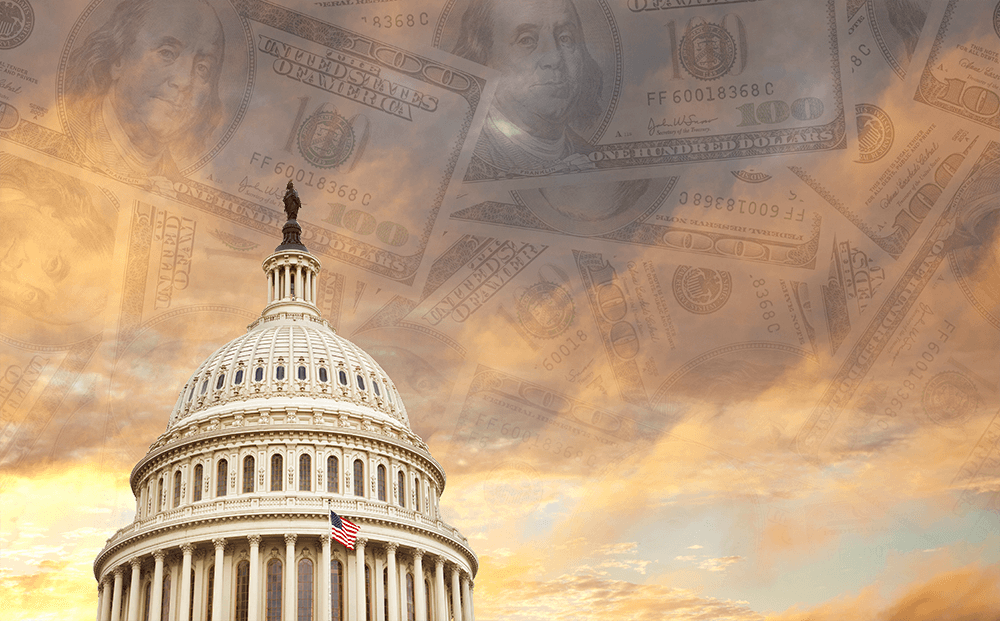How the CARES Act Could Be “Helping” That Hurts
By Savannah Aleckson, published in the Joplin Globe on May 3rd, 2020
It’s been a historic year already, and we’re not even halfway through 2020. From the onset of the COVID-19 outbreak here in the United States, to the subsequent bottoming out of the stock market and the accompanying job losses and panic, it’s been a rollercoaster. In an attempt to stabilize the economy in these tumultuous times, Congress recently passed the CARES Act, a massive relief package far surpassing any stimulus in US history.
The aim of the CARES Act is clear–to float an economic lifeline to those impacted by COVID-19. While help may be necessary for businesses and individuals suffering the undeserved economic consequences of shelter-in-place mandates, we ought to vigilantly watch interventions posited as “good” by the government. As we know, not everything touted as being helpful actually is. Thoughtful citizens ought to watch for three overlooked but very real negative effects of the CARES Act:
It will cause inflation, a win for bureaucracy and a loss for the average citizen.
The gargantuan size of the CARES Act is historic and provides relief to different sectors of the economy–large corporations, small businesses, non-profits and individuals–to the tune of two trillion dollars. Where does that money come from? It’s not money our federal government has, as we sit at a 23 trillion dollar national deficit. To cut checks to most Americans, float loans to businesses, and give grants to nonprofits, the government does a sort of sleight of hand–it sells government bonds that when cashed in require more money to be printed. It feels harmless; Americans need more money to weather this crisis. But does printing more money create more value in the economy? Does wealth increase when more dollar bills are in circulation? No. We know from Economics 101 that increasing the money supply without producing more labor, goods, or services causes inflation. Prices go up and tend to outpace increases in the average person’s paycheck.
Indeed, the ripple effects of these actions extend far beyond Capitol Hill–the local coffee shop where you get your morning pick-me-up will feel the effects, as will your next door neighbor who has been dutifully putting away a little money into savings each month and your own family as you budget for necessities like food and rent. Savings decrease in value because it takes more dollars than it once did to purchase goods or services. Inflation is like a tax on savings—rather than a direct tax paid to the government, inflation is the price paid for the government increasing the money supply.
It will prop up non-profits who have limited impact—or worse, a negative impact.
Under the CARES Act, nonprofits in existence March 1st, 2020 will be able to receive a loan up to 10 million dollars from the federal government. Should these non-profits keep their staff on payroll during this crisis, the loan will be forgiven, essentially turning the loan into a grant.
Is this a concern? Shouldn’t non-profits doing good work receive help to weather these trying times? Yes, they should. But who should give the help? The stimulus package can be thought of as the federal government giving back to taxpayers a portion of their own dollars they paid in taxes to use as they see fit (yes, a dream come true). But organizations claiming 501(c)3 status have never paid taxes. Should they receive money from a government to which they never gave? Rather than joining the money-grab and contributing to harmful inflation, nonprofits ought to lean on the compassion and generosity of donors in their communities, many of whom will soon receive an influx of cash from the return of their tax dollars.
Another compelling reason to put the onus of charity support on individuals is because the federal government is horrible at determining where resources should be directed at the local level. Private donors demand more accountability from the non-profits they support; they watch for indicators of a non-profit’s effectiveness, prudent spending, and a real impact made in the community. The federal government simply can’t be this discerning when distributing funds to nonprofits; in fact, no prerequisites are in place in the CARES Act to vet charities for their effectiveness. The unavoidable result of this indiscriminate giving is that effective, impactful charities won’t be the only ones who receive government funds, but ineffective, mis-managed, dependency-fostering non-profits will also–inevitably exacerbating the problems of unhealthy dependency and generational poverty.
It threatens the role of civil society.
In a global pandemic that has caused pain, fear, and a major economic downturn in our nation, help is warranted. And yes, a good argument can be made that the federal government ought to quell some of the damaging effects. However, as responsible citizens who value our liberty and want the best for our vulnerable neighbors, we must remain on guard against government’s usurpation of responsibilities that belong to us—namely, the responsibility to care for our family, friends, and neighbors.
Government interventions such as the CARES Act are dangerous. As resources are pumped into the economy in the form of checks to individuals, grants to businesses, or hand-outs to nonprofits, the unfortunate and all-too-common effect is the undermining of civil society; when we think the government is taking care of our neighbor, we’re less likely to.
These are unprecedented times, and certainly unprecedented times call for unprecedented measures to address them adequately. However, federal responses to crises should never interfere with the individual duty to care for our neighbor. When it does, our social fabric decays as we become an increasingly isolated and unconcerned society– certainly a more terrible crisis than the current one.
 Savannah Aleckson is the True Charity Initiative Regional Director for the Joplin, MO area. True Charity seeks to equip charities, churches, and nonprofits with the principles and practice of effective charity.
Savannah Aleckson is the True Charity Initiative Regional Director for the Joplin, MO area. True Charity seeks to equip charities, churches, and nonprofits with the principles and practice of effective charity.



